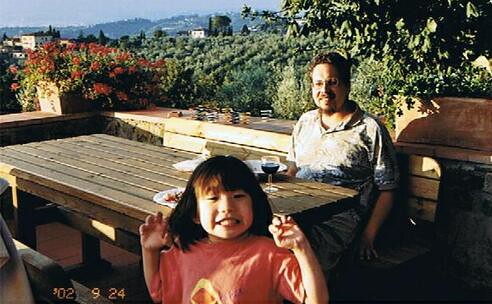|
|
Sunday, December 30th, 2007
From this point onward, apart from a few inevitable comments, the story of the old man with the black eyepatch will no longer be followed to the letter, being replaced by a reorganised version of his discourse, re-evaluated in the light of a correct and more appropriate vocabulary. The reason for this previously unforeseen change is the rather formal controlled language, used by the narrator, which almost disqualifies him as a complementary reporter, however important he may be, because without him we would have no way of knowing what happened in the outside world, as a complementary reporter, as we were saying, of these extraordinary events, when as we know the description of any facts can only gain with the rigour and suitability of the terms used.
--José Saramago, Blindness
I'm struggling with this passage a little. It seems to me like it must be pretty important to the story, coming as it does near the center of the book and immediately after the scene in which the old man with the eyepatch, "the one person who was missing here", joins the inmates of the opthalmologist's ward. Some significant shift in the narration is occurring here -- this is the first time the narrator has referred to himself and to the job he is doing in this way. But it seems very strange for him to say "from this point onward", when throughout the story so far all dialog has been paraphrased to the point of dismissal -- nothing has been "followed to the letter".
posted evening of December 30th, 2007: Respond
➳ More posts about José Saramago
|  |
Tuesday, December 25th, 2007
I'm loving Saramago's style of writing dialogue without yet totally getting it -- it draws me in and hypnotizes me, but I sometimes find myself struggling in mid-paragraph to track who is saying what. The characters are always threatening to sound like automata, I think in part because of this clipped, almost dismissive rendering of their speech; but in small ways their humanity comes through.
posted evening of December 25th, 2007: Respond
➳ More posts about Readings
|  |
At the pedestrian crossing the sign of a green man lit up. The people who were waiting began to cross the road, stepping on the white stripes painted on the black surface of the asphalt, there is nothing less like a zebra, however, that is what it is called.
This is a promising start to Blindness -- the descriptive language, the comic timing. Also the final line of the first chapter is very nice: "That night the blind man dreamt he was blind."
It will take a little while to really get into the rhythm of the dialogue -- I'm reminded of how it takes some time to get into the groove reading Gaddis.
posted afternoon of December 25th, 2007: Respond
|  |
Thursday, December 20th, 2007
Meredith Sue Willis has a blog! (Found via South Orange Journal's list of links.) One without permalinks, which I haven't seen much of lately. But if you scroll down to December 12 you will see she is recommending José Saramago's Blindness. This is good timing because I had been looking for a book to read, Blindness was on my list but forgotten, I think now is a good time to find a copy and read it.
posted afternoon of December 20th, 2007: Respond
| |
|
Drop me a line! or, sign my Guestbook.
•
Check out Ellen's writing at Patch.com.
| |









